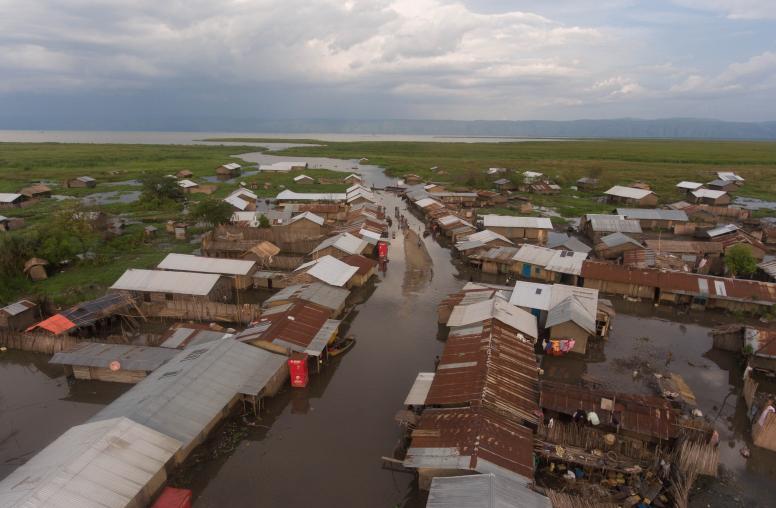Assistant Secretary of State Johnnie Carson Explains the U.S. Military Mission in Uganda
Assistant Secretary of State Johnnie Carson tells a USIP audience at an event in December about the deployment of American military forces to Uganda to pursue the Josephy Kony and the Lord's Resistance Army.
December 13, 2011
The deployment of about 100 American military personnel to combat the enduring brutality of the Lord’s Resistance Army and its charismatic leader, Joseph Kony, is to play a “supportive role” with the Ugandan army, said Ambassador Johnnie Carson at USIP on Dec. 7.
Carson, the assistant secretary of State, U.S. Bureau of African Affairs, took the opportunity during a speech and panel discussion on the LRA to discuss the deployment of forces that was first announced in October. Carson, a former ambassador to Uganda, stressed that the administration had committed the force there as solely as advisors in the effort to stop Kony and wasn’t there for any other reason. The deployment, he said, is not “open-ended,” but it is unclear how long they will be there, either. The administration will continue to assess their mission over the next several months, he said.
“Although they are equipped for combat in the case that they need to defend themselves, the U.S. forces in this operation are there to play a supportive role to the UPDF and national militaries pursuing the LRA,” he said.
Kony remains a threat to the region even if the size of his force has dwindled in recent years. At one time, he had the equivalent of thousands upon thousands of fighters and wielded tremendous power. Today, there are only as many as 200 “core fighters.” Nonethless, Kony’s and the LRA’s record of brutality, torture and intimidation is shocking to even the most jaded observer of atrocities and as a result he still retains disproportionate influence in and around Uganda.
“The LRA retains the capacity to cast a wide shadow across the region because of its brutality and the fear it arouses in local populations,” Carson said, noting that as of August 2011, the United Nations estimated that some 440,000 people were displaced or living as refugees across the region as a result of the LRA’s pernicious influence. But the group is still active. According to the U.N., there have been 250 attacks in the region that have been attributed to the LRA in the last year.
Over the years, Kony and the LRA bolstered the number of fighters by kidnapping small children to turn them into child soldiers and others into sex slaves. Kidnappings were so common that many village kids learned to become “night commuters,” taking the long way home to avoid falling prey to the LRA, Carson said. More than 66,000 children have been abducted since the LRA began its insurgency some 25 years ago.
Success in countering the LRA will depend on the “resolve” of the affected countries, Carson said. “Although the [Central African Republic, Democratic Republic of the Congo] South Sudan and Uganda have many differences, they are bound together by this common regional threat and have a shared interest in working together to end it,” Carson said. “For our part, the United States will continue to stand with the people and governments of Africa as they stand up and work together to end the LRA’s reign of terror and establish sustainable peace and security,” said Carson in conclusion. “Doing that is on the right side of history and on the right side of our values, and on the right side of our strategic interests.”



